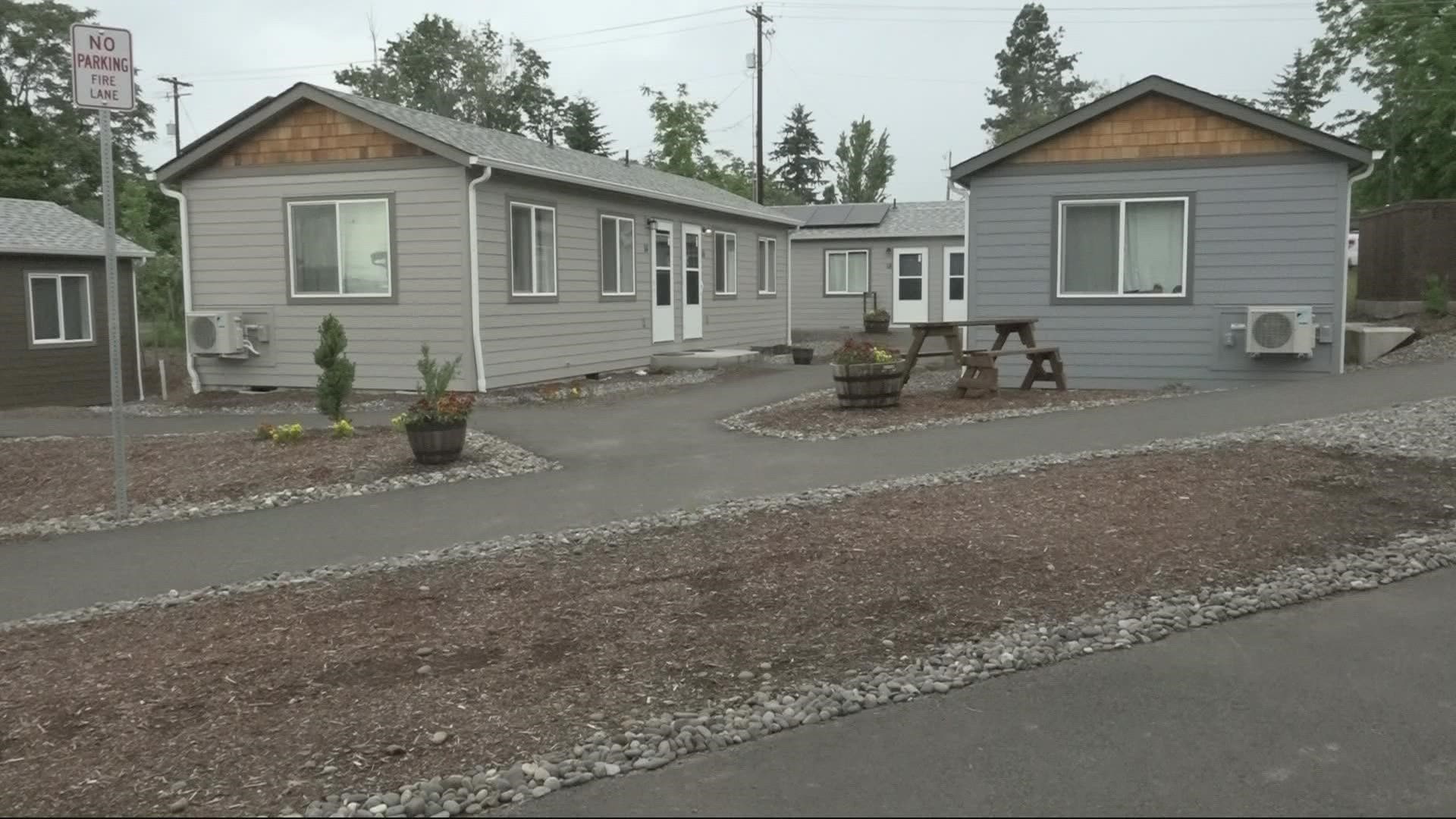VANCOUVER, Wash. — The rumbling of passing cargo trains filled a tiny home neighborhood on the west side of Vancouver off Lakeshore Avenue Wednesday morning.
Fruit Valley Terrace is Clark County’s first tiny home rental community built for people transitioning out of homelessness.
“Once they move in, they can stay in,” said Chris Thobaben, executive director of Community Roots Collaborative, the nonprofit leading the low-income housing project.
There are 21 tiny homes and 39 people living there.
“The community itself is built around the concept that if everybody is sympathetic or empathetic to their neighbors, it would be an opportunity for them to heal and grow,” he said.
This approach to the housing crisis is different from what’s happening across the river in Portland.
As Portland's Safe Rest Villages begin to open, tiny home communities are also being built in Clark County. They’re transitional places people can go when they leave Safe Rest Villages or other low-barrier shelters.
RELATED: In 10 years, Houston got 25,000 people off the streets and into housing. Could Portland do the same?
There are no background checks but tenants must be sober, make below 30% of the median income and be exiting homelessness.
“It’s a nice place to be,” said one of the tenants, James Walls. He moved into his tiny home about seven months ago. Before, he was living in his car and struggling to find a home in his budget.
“Rents have just gone sky high and I didn’t have any rent history,” he explained.
Now, he pays $650 a month for his own space.
“I have my nice comfortable chair right across from the TV,” he said, as he showed KGW around his living room.
Walls said a number of people at in the tiny home community have faced similar situations as him. They've struggled not because of drugs or crime, but because of other circumstances.
“The nice part is everyone has a unique little area to create and make their own,” said Derek Huegel, who runs Wolf Industries, the company that builds the 10-foot by 30-foot homes. “You feel like a normal citizen living in one of these houses."
The homes take about three months to build, and Huegel said his company can make up to 100 of them per year.
“It feels good to know that the system’s working,” he said.
“It’s just perfect for me,” added Walls.
Community Roots Collaborative has two more properties in the works and hopes to have about 23 more tiny homes completed by spring of next year.
The monthly cost for one tiny home is the lowest base rent for a one-bedroom in all of Clark County.

